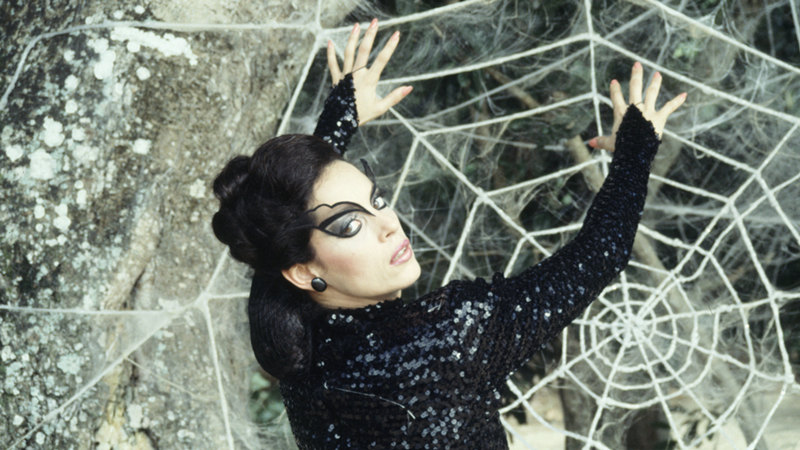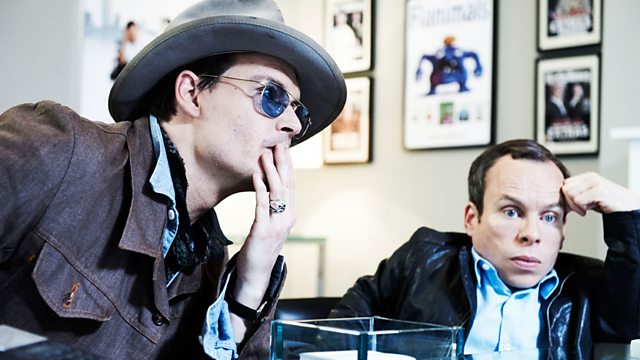If anything, I suspect that Robert Greenwald’s new documentary “Koch Brothers Exposed” (2012) undersells the sheer vileness of the scions of wealth who have leveraged a nearly unparalleled stash of private equity into nearly unparalleled political influence. On the other hand, the Koch brothers (Charles and David being the two usually referred to) have become so synonymous with right-wing power grabs, both clandestine and overt, that it’s hard to tell where reality ends and paranoia begins. I wish there was a way to separate the truth from the myth, but in this age of ubiquitous disinformation, we don’t have much to cling to.
I also wish that Robert Greenwald was a better filmmaker. The liberal activist firebrand has the heart of a tiger but all the subtlety of, well, a tiger – a tiger mauling an antelope after a weekend spent in solitary at tiger fat camp. Greenwald, by way of his grassroots funded Brave New Foundation and Robert Greenwald Productions, has produced politically-charged exposés such as “Outfoxed: Rupert Murdoch’s War on Journalism” (2004) and “Iraq for Sale” (2006) along with corporate broadsides like “Wal-Mart: The High Cost of Low Price” (2005).
Greenwald has always avoided the irritating and dishonest masquerade of impartiality that many so-called journalists still try to peddle, but in adopting unabashed partisan positions he has long since settled for making films that preach to the choir. That’s not a fatal flaw; informing and motivating the base is a noble cause. But in pulling no punches, he pitches his arguments at such a high register that it can be a challenge to hear what really needs to be said. His audiovisual strategies are also (how do I say this kindly?) occasionally a bit tacky.
A dramatic low bass-heavy score rumbles throughout each segment of the film as the sins of the brother Koch (pronounced “Coke” though often thought of in terms of another possible pronunciation) are enumerated. Their father Fred made billions in oil (selling his “cracking” process in Russia and other points abroad) and parlayed it into Koch Industries, now the second largest privately-held corporation in America (dad was also a founding member of the John Birch society, a commie-baiter, and was none too fond of “the coloreds”). Using their inherited billions, the Kochs have funded a “free market” agenda (using the strategically named Americans for Prosperity as a front) to eliminate Social Security, undermine EPA regulations (something which, by sheer coincidence, directly benefits Koch Industries), pass Voter ID restrictions, reshape public and university education, and obliterate organized labor. Also, they punch kittens.
On the latter front (labor, not kittens), the Kochs were prominent (even by absence) in the news recently thanks of the doomed recall vote in Wisconsin in which Governor Scott Walker won a decisive victory and, so the pundits tell us, dealt a crippling blow to public unions. Walker has long been rumored to be in the Koch Brothers’ hip pocket, or perhaps deeply implanted in even more intimate Koch personal spaces. In one of the best moments in the documentary, we hear a prank call placed by a David Koch impersonator (Ian Murphy) who is instantly whisked through by a secretary to Governor Walker who expresses his lapdog gratitude to his (alleged) master.
If only there were more moments like this. Greenwald spends far too much time amping up that rumbling bass, showing shots of gathering storm clouds, and overmixing the repeated metallic “clank” of a stamp that imprints ominous charges onto pictures of the Kochs, all of which inadvertently imbuing them with the bad boy-chic aura of Sith Lords. Hell, these guys are so evil they even cause cancer, and that’s despite the fact that David Koch himself is a prostate cancer survivor. Charges aren’t arguments, however, and the stridency of Greenwald’s rhetoric leaves you feeling manipulated even into believing something you already know to be true.
I’m not sure what function this kind of filmmaking serves, but I suppose there are people in the world who have no idea who the Koch Brothers. Perhaps the movie is aimed at them. For everyone else, I’m not sure there’s anything you can learn here that you can’t find on a night of Google searching, but at least the movie’s short (55 min.)
Video:
The film is presented in a 1.78:1 widescreen aspect ratio. The interlaced transfer is average and the image quality varies a bit with the use of archival footage and graphics. It’s perfectly adequate.
Audio:
The Dolby Digital Stereo track is clearly mixed but I found I had to dial up the volume more than usual. The audio design is pretty straightforward. Optional English and Spanish subtitles support the English audio.
Extras:
The film is accompanied by a Director’s Commentary Track. The disc also includes several short featurettes about the difficulty of the filmmaking and the elusiveness of the Koch Brothers as well as two Extended Interviews with Lawrence Lessig and Benjamin Todd Jealous.
Film Value:
Greenwald already has such ripe targets he doesn’t need to take such cheap shots at them.. A more sober inquiry would do a better job of “exposing” the Koch brothers to the world. But as activist programming, this documentary is probably effective enough to make some folks hopping mad about the purchasing of “free speech” in the American body politic. Whether it motivates them to constructive resistance is another matter. I really like Robert Greenwald; I really wish I liked his movies more.


